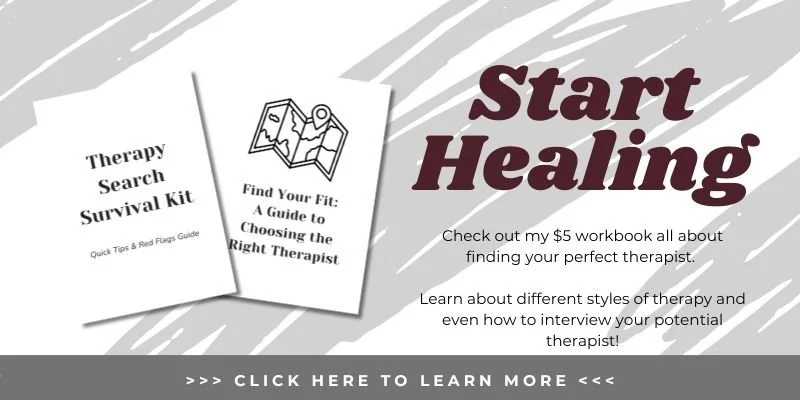How Do I Break Up With My Therapist
Breaking up with a therapist can be difficult, and it’s important to approach the situation with sensitivity, thoughtfulness, and respect. If you’ve been seeing a therapist for a while, chances are you’ve formed a meaningful bond, and ending the relationship can be a daunting task. It’s okay to change your mind about continuing therapy. This blog post will provide tips for how to break up with your therapist in a way that’s considerate, compassionate and honors the relationship you’ve built.
Assess Why the Relationship is not Working
Before deciding to break up with your therapist, assessing why the relationship isn't working is important. It could be that you're not feeling heard or your therapist isn't helping you progress in your treatment. It could also be that you are feeling too emotionally connected to the therapist or that you don't feel comfortable being vulnerable. Regardless of the reason, it's important to think deeply about why you need to end the relationship to ensure it's the right decision for you.
Speak to Your Therapist About the Situation
Breaking up with your therapist can be a difficult process, both emotionally and professionally. The best way to approach the situation is to speak to your therapist. This will allow them to explain their feelings and determine whether continuing therapy is the best option for you. It is also important, to be honest, and respectful. This can help ensure that the break up is amicable and that the therapist can provide closure and support to help you transition to a new therapist.
Find an Alternate Therapist
The third step in the process is to find an alternate therapist. This can be done by researching potential new therapists in your area, asking friends and family for referrals, or using online directories. Consider the type of therapy you need, the therapist’s approach, and any specialties or certifications they may have. You should also consider their availability, location, and whether the therapist has free or sliding scale options. Lastly, make sure the therapist is a good fit for you. Take some time to talk with potential therapists and get to know them before deciding.
I provide online therapy in states like Colorado, Connecticut, Idaho, Florida, and Utah. If you're looking for a new provider, I’d be glad to help.
Make Sure to Provide Proper Notice
Breaking up with your therapist is not like ending a traditional romantic relationship. However, you still need to take steps to ensure that the process is respectful and professional. One of the most important steps is to provide proper notice. Before you conclude therapy, you should tell your therapist about your decision and tell them why you are terminating the relationship. Give them a reasonable amount of time to process your decision and provide any closure that you feel is necessary. This time frame will vary depending on how long you have been in therapy. Two weeks is usually considered an appropriate amount of time. Make sure to also provide your therapist with an alternate way to reach you if they need to contact you after the sessions have ended.
Respect the Therapist's Professional Boundaries
When ending the therapeutic relationship, it’s important to remember to respect the therapist’s professional boundaries. Avoid being overly emotional or asking for personal advice or favors. It would be best if you also avoided attempts to keep in contact with the therapist on a personal level. While it may be tempting to remain friends with your therapist, it’s important to remember that the therapist-client relationship is professional, and any contact outside of this relationship is considered a breach of professional ethics.
Breaking up with your therapist can be a difficult but necessary decision. Ultimately, it would be best to remember that you are in charge of your well-being and should do whatever is best for you. It can be helpful to get some advice from a trusted friend, family member, or mental health professional if you struggle to decide to end the therapeutic relationship. Ultimately, though, the choice is yours; only you know what is best for you.
About the Author
Taylor Garff, M.Coun, LCPC, CMHC, LPC, is a licensed therapist with over 10 years of experience helping adults manage anxiety, overwhelm, and identity challenges. He is certified in HeartMath, Safe and Sound Protocol (SSP), and breathwork facilitation. Taylor is the founder of Inner Heart Therapy, where he provides online therapy across multiple states.

